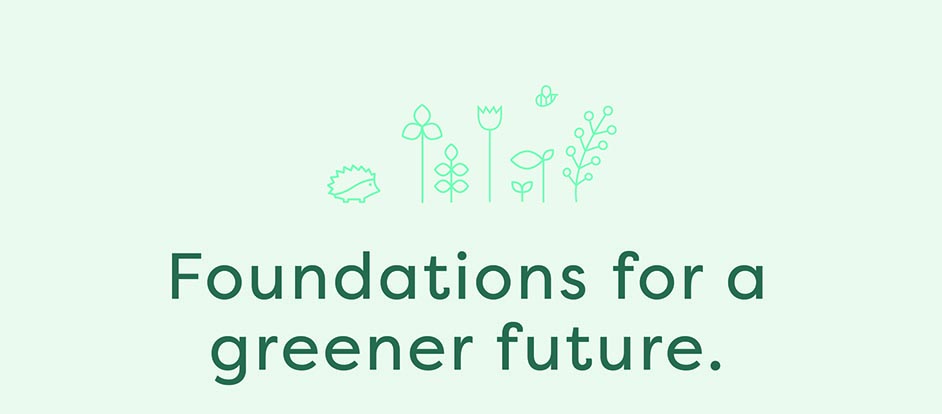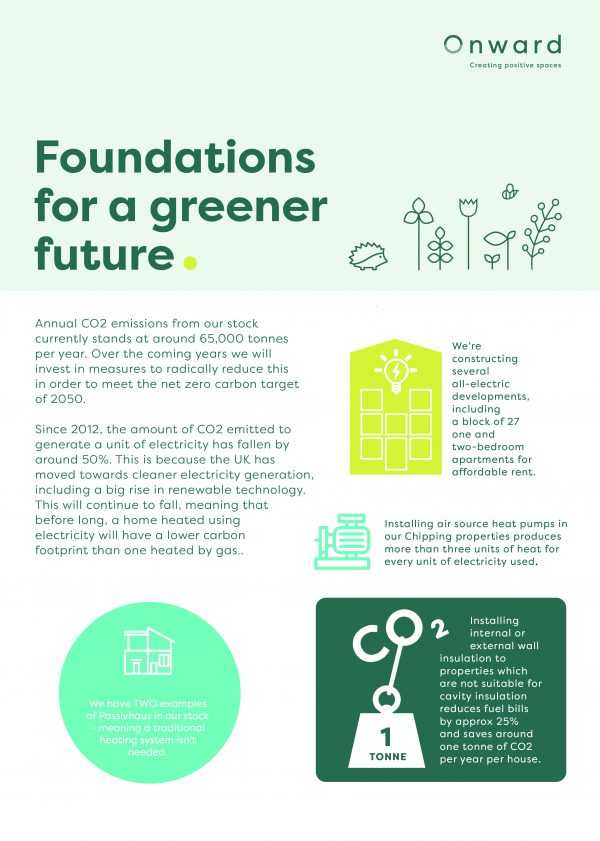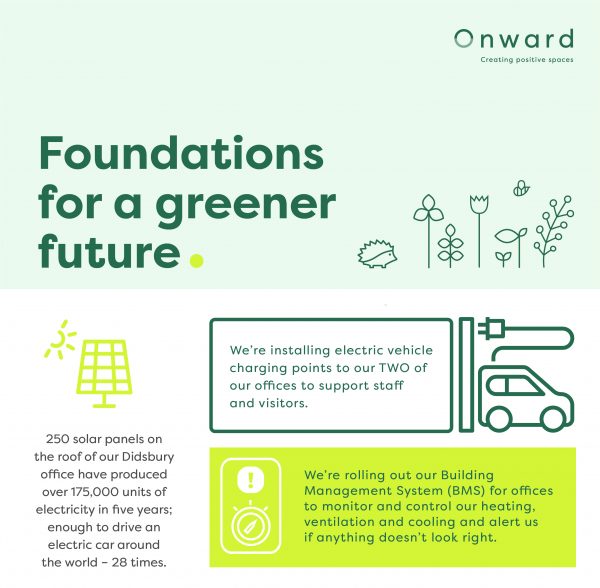Building a better climate for customers

Let’s give a warm welcome back to our Asset and Data Manager Colin for part two of his Homes At The Heart of a Greener Country blog! Today we’ll hear about how we’re building our new properties to be as energy efficient as possible, and how it benefits our customers. We also look at energy efficiency in our offices, and plans for the future.
Incorporating green measures when building new homes, rather than adding them to existing ones, can provide the very best performance. Colin shares how, along with our retrofitting work discussed in part one, decarbonisation allows us to save our customers money by improving home energy efficiency. It also protects our planet by reducing carbon and tackling climate change. Finally, it helps create jobs and economic activity through a programme of investment in our homes.
The 2050 deadline
The Government has committed to net-zero carbon emissions by 2050. Most of the homes we’ll be living in by then have already been built though, so the country can’t rely on high-specification new-build homes to meet the targets. Therefore, retrofitting our existing homes is going to be a big challenge over the coming years, which we touched on earlier this week. In the meantime, we look to the future with the new homes we’re building.
While 2050 may feel like a long way off, the Government has decided that from 2025 there will be no gas boilers in new developments. In effect, the construction industry is being encouraged to move towards electric space and water heating.
All new electric homes will rely on ingenious design and increased thermal insulation to drive down the need for, and costs of, electric heating.
We’re always looking to be at the forefront of environmentally friendly initiatives and are already in construction of several all-electric developments, including a block of 27 one- and two-bedroom apartments for affordable rent on Mersey Drive, Whitefield.
We’re also using the latest software to help us understand how to make sure all our properties meet carbon reduction targets. With over 27,000 homes to assess this will help us set our short- and medium-term priorities.
Nothing Passiv about our properties
Alongside our electric homes, we have two examples of Passivhaus in our stock. Passivhaus is a type of home design from Germany meaning properties are so well-insulated they hardly need any heating at all.
Passivhaus homes use heat from their occupants, appliances and sunlight for most of the home’s needs, so a traditional heating system is not needed.
A sunny outlook for Onward offices
As well as the homes we build and maintain for customers, our team also needs offices to work from (as well as the new home-working arrangements). Our main regional hub offices are large buildings for around 200 colleagues each. They all need heating, cooling, lighting and electricity to keep everything running.
In 2015 we moved to our Greater Manchester regional office and saw an opportunity to reduce its electricity demand by installing solar panels on the roof of the building. There are 250 panels, producing up to 50kW of clean electricity.
Since the system was installed, it’s produced over 175,000 units of electricity in total; enough to drive an electric car around the world – 28 times! The panels will also carry on working for many years to come.
To help us manage our energy usage more efficiently, and reduce costs and carbon emissions to both our offices and sheltered schemes, we will also be rolling out a Building Management System (BMS). The software will monitor and control our heating, ventilation and cooling to make it as efficient as possible. It alerts us if anything doesn’t look right so we can respond as quickly as possible.
Small steps for a big impact
In the coming months we’re planning to install electric vehicle charging points in our Lancashire and Manchester offices to support colleagues and visitors who drive electric vehicles.
We also recently introduced indoor planting to our new Watson Building in Liverpool, and are considering a green wall or further planting in our other hubs. Indoor planting in offices provides a range of benefits including improving the air quality, reducing noise levels, promoting wellbeing and performance, and even boosting creativity.
Offices can generate large amounts of waste, so we recently added dedicated recycling bins to our offices to make sure as much of it as possible is recycled. We have also reduced the amount of single-use plastic used within our offices – for example, swapping disposable plastic cups for glasses.
The results so far
For customers:

Our facilities:

Tackling climate change is a priority for us and our fellow social housing providers but we cannot do it alone, and need as much support from local partners and our customers as possible.
To find out more about our work around energy efficiency take a look on our website or give us a call on 0300 555 0600

